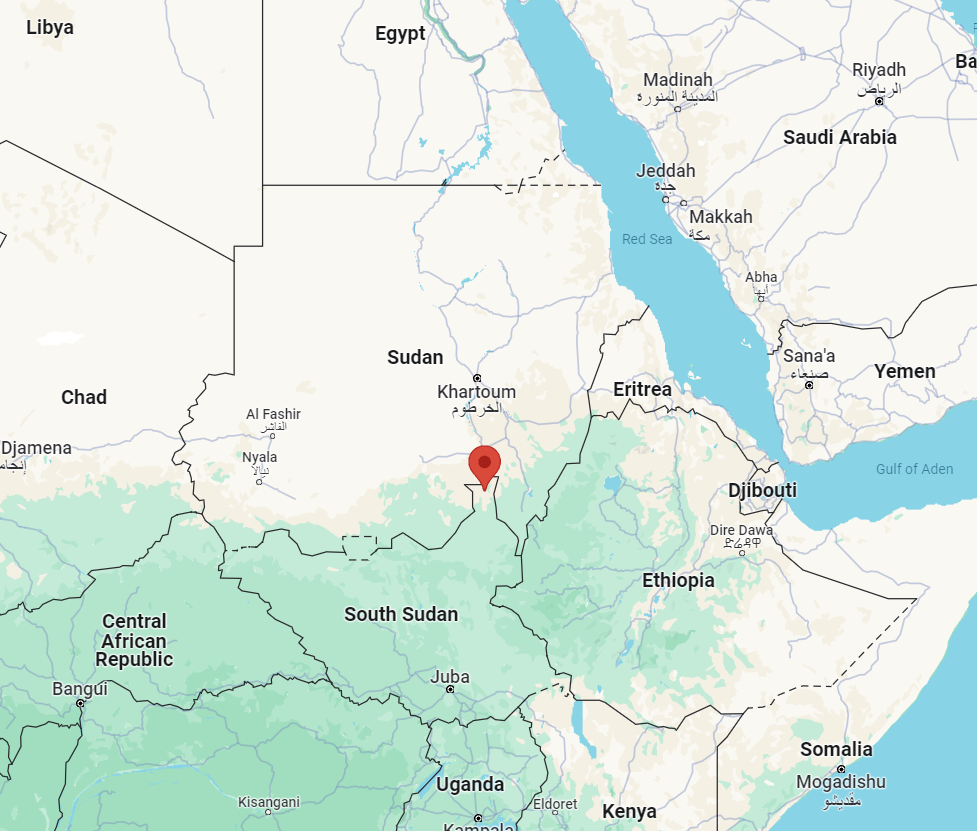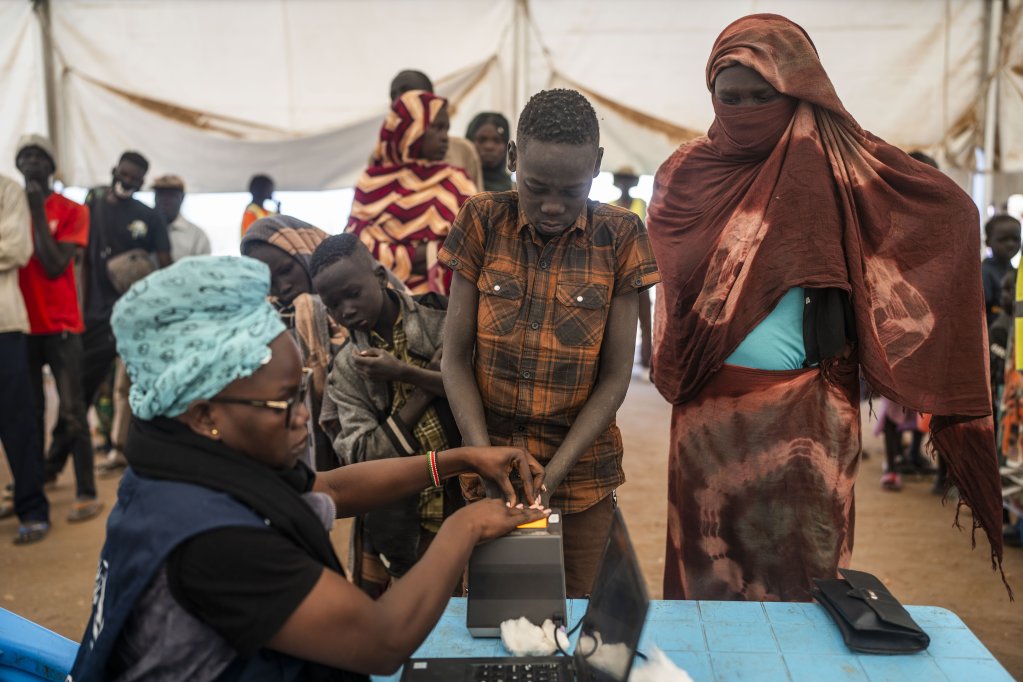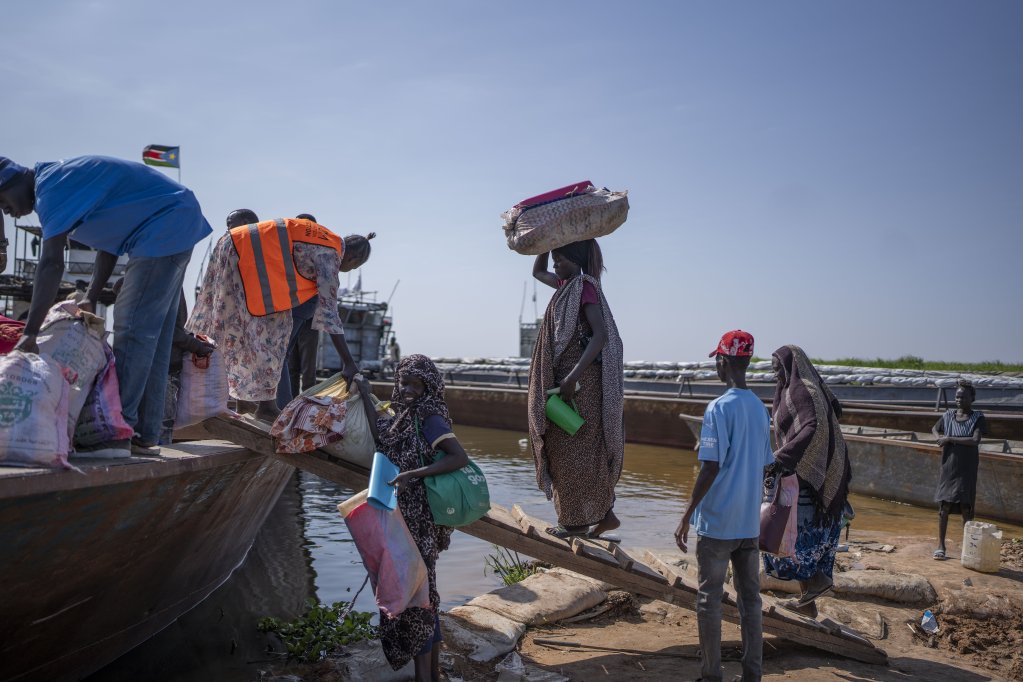The civil war in Sudan has killed thousands of people and displaced nearly 10 million since it began last April. In the South Sudanese town of Renk, hundreds of refugees turn up each day.
The 200 kilometers that separate the central Sudanese city of El-Obeid from the South Sudanese border town of Renk are the difference between constant fear of death and relative safety.
"The bullets were entering our house. We were trapped between crossfire in our own street," Fatima Mohammed, who fled to South Sudan with her husband and five children, told the news agency AFP. "We understood that we needed to leave for the good of our kids."
It took the 33-year-old teacher and her family five days to make their escape, with Sudanese soldiers and RSF fighters "making [it] difficult for us to leave the country".
"They took all our phones at one checkpoint, a lot of our money [at] another one. We saw abuses happening at those checkpoints," she said.

Every day, up to 10 trucks and buses arrive in Renk, each packed with dozens of exhausted refugees.
Over the past ten months, more than half a million people have crossed the border into landlocked South Sudan. The United Nations estimates that around 1,500 new arrivals turn up in the country every day.
Last April, fighting broke out between army chief Abdel Fattah al-Burhan and his former deputy Mohamed Hamdan Daglo, commander of the paramilitary Rapid Support Forces (RSF).
Since then, Renk's two UN-run transit centers have been overwhelmed by a constant influx of people fleeing for their lives.
Read more: IOM: More than 10 million displaced by conflicts in Sudan
8 million displaced people
Since the start of the armed conflict, nearly eight million people, half of them children, have fled Sudan, according to the UN.
Around 560,000 of them have taken refuge in South Sudan, which gained independence from its neighbor to the North in 2011. Many spend months waiting in the transit camps in the hope of being able to return home soon.
Leaving her husband behind, Iman David fled fighting in Sudan's capital Khartoum with her then three-month-old daughter.

"It was supposed to be a short stay, but I am still stuck here in Renk after seven months," the 20-year-old told AFP.
"My hope is to go back to Khartoum and reunite with my husband but I don't know his fate."
According to UN figures, the war has claimed the lives of more than 13,000 civilians. Around 25 million people -- more than half of Sudan's population -- need humanitarian assistance, and around 3.8 million children under the age of five are suffering from malnutrition, the UN says.
Also read: 13 Sudanese migrants die in shipwreck off Tunisia
Uncertain future
In Renk, hundreds of people lined up in the midday heat for hours to board one of the metal boats that take people up the White Nile at least twice a week. The river flows through the South Sudanese capital Juba, about 800 kilometers to the south, and merges with the Blue Nile to form the Nile in Khartoum.
Lina Juna, a 27-year-old woman caring for four children, told AFP that Juba was her final destination -- despite having "nothing to do" there. "I have no family members or friends [in Juba], no business or work to take care of because I have spent all my life in Sudan," she said.

"But I still expect Juba to be much better than Khartoum," she added, recalling days spent struggling to find food amid heavy fighting.
Others want to travel to a town southwest of Renk, Malakal, which is also hosting a large number of refugees.
On the same day, Juna managed to get on a boat with about 300 other people.
"Today is a good day for us," said Deng Samson, who works for UN migration agency IOM. "Some weeks we have seen ourselves completely overwhelmed," he told AFP.
The approaching monsoon is only adding to his long list of worries. "We are truly afraid of what will happen when the rainy season comes, with waters rising from the river and disrupting the normal functioning of the port."
In an effort to mobilize the international community, the UN earlier this month launched an appeal for 4.1 billion dollars to respond to the most urgent humanitarian needs.
Based on an AFP feature
